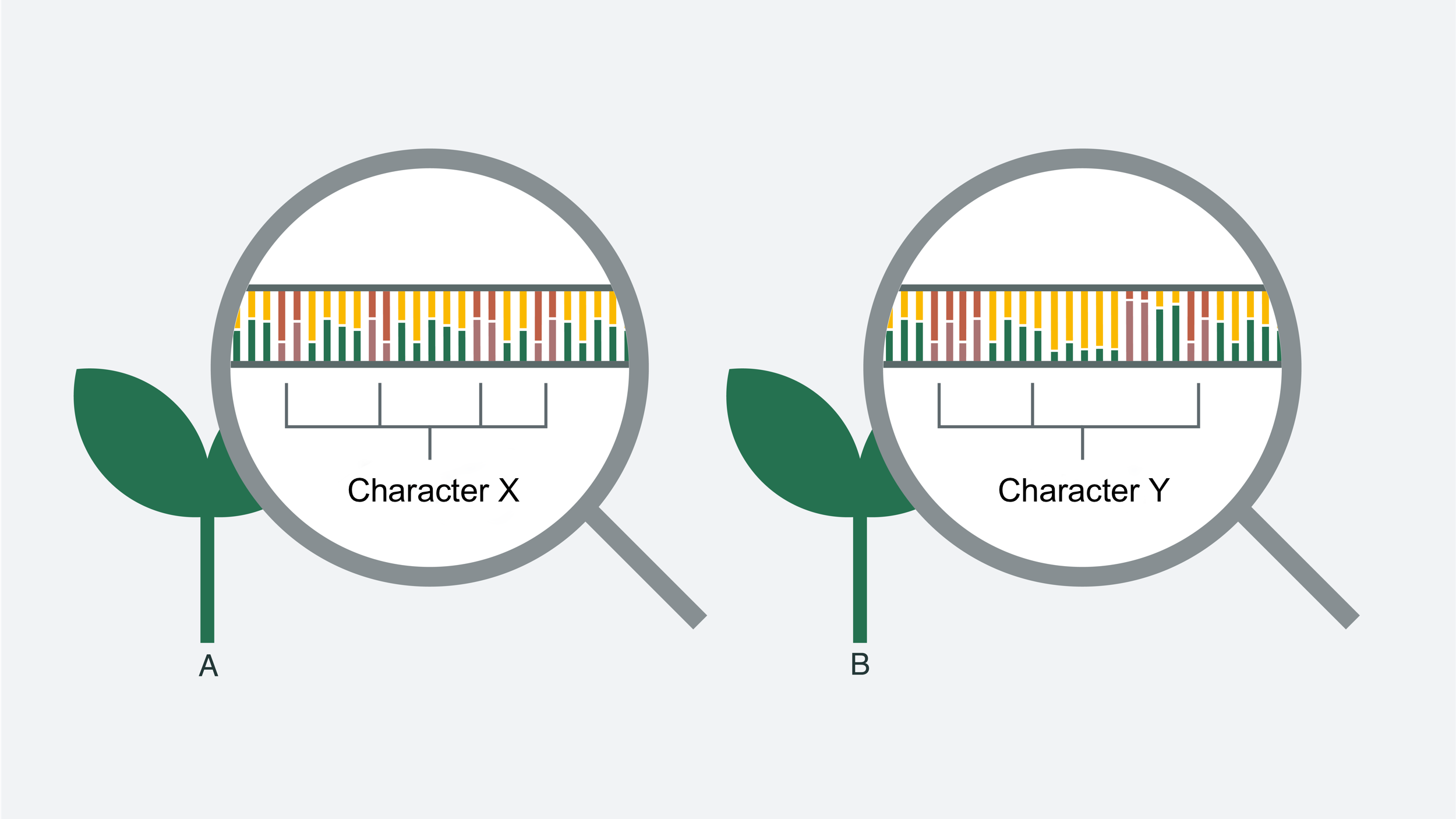Genetic research
Overview
In short
Here, the holistic structure and biological functions of the plant genome are explored.
Advantages
Complex characteristics that are not based on individual genes but on networks of genes can be analyzed and accurately adapted.
Disadvantages
none
Development
Application in practical plant breeding since the 1990s.
Application at KWS
To analyze the genetic material of sugarbeet, corn, rapeseed, sunflowers, wheat, barley or rye. Many research projects are carried out in collaboration with our partners.

